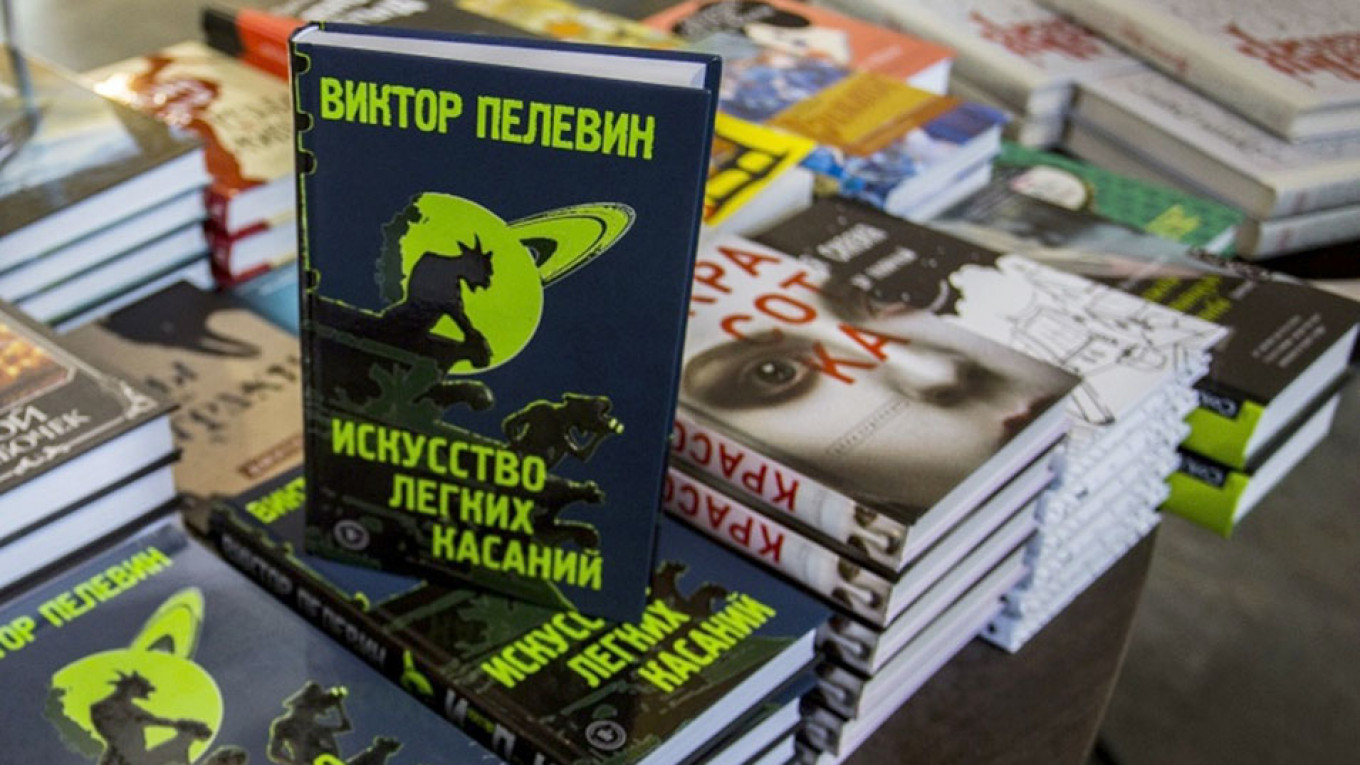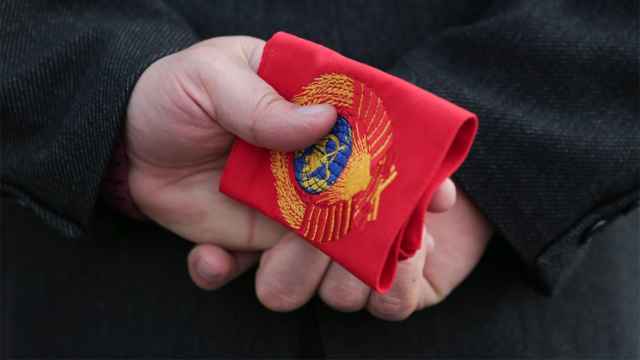Every fall, Russia’s reading public is offered a new dose of esoteric musings and funny word play from the novelist Viktor Pelevin. While it may be a nuisance for those who have never been hooked on his work, it is now a notable annual literary event for those expecting his latest release. This year’s work is actually three novellas, one of which might be of interest for the most curious of Russia watchers.
Titled “Iskusstvo lyogkikh kasanii,” or “The Art of Subtle Touches” in English, it tells the story of a secret Russian military unit whose mission is to avenge the collapse of the Soviet Union — the “greatest geopolitical catastrophe of the century,” in President Vladimir Putin’s famous words. The book is a riff on the news cycle of recent years, dominated by discussion of Russia’s interference in the 2016 U.S. presidential elections and its presumed disinformation and influence campaigns. It also offers a humorous and incisive examination of the Russian way of thinking and interpreting the world.
General Izyumin, a military intelligence officer responsible for subtle influence operations, is part of the Russian Army’s foreign intelligence division known as the GRU. The GRU is thought to be responsible for Russia’s cyber and other secret operations, including the attempted murder of the former double agent Sergey Skripal. These developments were on the news as Pelevin was writing his novel.
As one of the characters explains in the book, the Soviet Union, when it still existed, suffered from being too influenced by the United States.
“Young people’s language was half English. The country was some sort of an aspiring America that dreamt of becoming the real thing but obviously could not. It was both funny and tragic,” one of the characters says. “But it gave us an idea.”
Since both Russia and the U.S. constituted a single “noosphere” — a presumed shared planetary sphere of mind or reason — Russia was in a position to respond in kind.
In the book, both Russia and the United States exchange “weapon-grade memes” and weaponized “chimeras.” The Russian military comes up with a new technique that combines the two, and they call their invention “chimeme.” The word sounds vaguely scientific, and that has its advantages: The ever cash-strapped Russian military can more easily attract funding for the project because their idiot superiors think the new weaponry has something to do with chemistry, explains one of Pelevin’s characters.
Imposing those “chimemes” on unsuspecting Americans is what constitutes the “art of subtle touches” referenced in the title. “Chimemes” are first deployed and then activated when late-night TV comedians and celebrities invoke certain phrases in their shows, or in innocent-sounding tweets. Russian agents pay them a fee to do this.
Political correctness
Working tirelessly throughout the post-Soviet years, General Izyumin’s unit creates and introduces in the U.S. a wide variety of social and political movements, from radical political correctness, to identity politics, to left-wing activism. That is subversive, to say the least.
“What would happen if conservative U.S. senators are told, at a secret hearing, that the entire political correctness agenda was created at a GRU farm outside Moscow?” – one of the characters asks.
According to one of Pelevin’s GRU officers, “Izyumin’s goal was to undermine freedom of speech in the U.S. from within and impose on American society the atmosphere of hypocrisy, fear, and lies that killed the Soviet Union.” The end goal was to get to the point at which American culture would simply implode and Russia would triumph.
All is going well for Pelevin’s General Izyumin until the Russian government decides to stop him. The project of subtle influences is suddenly terminated. The Russian government hits the brakes because it realizes that the U.S. secret services are aware of the Russian operations and have begun to prepare a response. American media reports about Russia’s interference in U.S. politics, about Russia’s troll factories and Kremlin bots on Twitter is, as it turns out, a signal from the U.S. intelligence community to their Russian counterparts: “We know what you are up to, and we will respond.”
The weapon that the U.S. military comes up with frightens the Russian side so much that Moscow decides to pull the plug on its most important intellectual offensive. So, what is that weapon? It is a realization, a widespread attitude that is activated, just like Russia’s “chememes” through social media that Russia is in a “fine mess.” The Russian expression used in the book — “kakaya zhe u nas zhopa” — is hard to translate and is probably close to expressions like “we are screwed.”
Hitting close to home
Sometimes funny and sometimes rambling, Pelevin’s over-the-top and fun piece of prose is a comment on today’s obsession with social media. But to my mind, the book is also a good reflection of where Russia’s intellectual sphere finds itself. The situation it describes hits so close to home as to be instantly recognizable to every thoughtful Russian: the endless play with conspiracy theories, the exaggerated sense of self-importance combined with a readiness to accept failure all too quickly. Today’s Russian psyche is evident within the intricate and surreal webs that Pelevin is weaving. Permeated with absurdist irony, Russia’s public sphere tends to be both self-deprecating and self-aggrandizing.
We Russians like to think of ourselves as smart and all-knowing, but we also think of ourselves as being in a state of constant mess; failures who are unable to make the simplest things work. We ignore all those Western insinuations about Russia’s nasty role in some of the geopolitical events that are always on the news, but we, in fact, do notice this news and we do think about it. That is probably why Pelevin’s irreverent postmodern fantasies resonate with us.
This article was originally published by the Wilson Center.
A Message from The Moscow Times:
Dear readers,
We are facing unprecedented challenges. Russia's Prosecutor General's Office has designated The Moscow Times as an "undesirable" organization, criminalizing our work and putting our staff at risk of prosecution. This follows our earlier unjust labeling as a "foreign agent."
These actions are direct attempts to silence independent journalism in Russia. The authorities claim our work "discredits the decisions of the Russian leadership." We see things differently: we strive to provide accurate, unbiased reporting on Russia.
We, the journalists of The Moscow Times, refuse to be silenced. But to continue our work, we need your help.
Your support, no matter how small, makes a world of difference. If you can, please support us monthly starting from just $2. It's quick to set up, and every contribution makes a significant impact.
By supporting The Moscow Times, you're defending open, independent journalism in the face of repression. Thank you for standing with us.
Remind me later.







